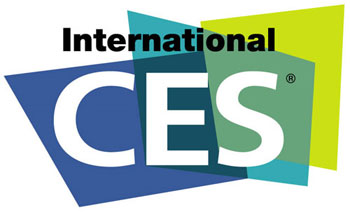Move over 3D HDTVs, CES 2011 was a tablet maker’s playground. But beside the iPad fighters, what did the trade show have in store for green consumers? Let’s have a look at trends and companies that made this year memorable for eco-conscious techies, and those we’d rather forget.
Hits
Ford: Who needs an auto show?
 It’s pretty brave for an automaker to make such a conspicuous splash in an industry event that has more to do with TVs than transmissions. Nonetheless, Ford used CES to unveil its upcoming, all-electric Focus. And while there’s a certain amount of crossover between electronics enthusiasts and EV proponents — even Best Buy is getting in on the act — the real draw is Ford’s in-car electronics wizardry. Thanks to its popular Sync system, I can’t wait to see what high-tech goodies it cooks up to entertain, provide connectivity, enhance safety and improve efficiency. And now that Ford is courting the software developer community, the possibilities are truly endless.
It’s pretty brave for an automaker to make such a conspicuous splash in an industry event that has more to do with TVs than transmissions. Nonetheless, Ford used CES to unveil its upcoming, all-electric Focus. And while there’s a certain amount of crossover between electronics enthusiasts and EV proponents — even Best Buy is getting in on the act — the real draw is Ford’s in-car electronics wizardry. Thanks to its popular Sync system, I can’t wait to see what high-tech goodies it cooks up to entertain, provide connectivity, enhance safety and improve efficiency. And now that Ford is courting the software developer community, the possibilities are truly endless.
A utility crashes CES
You know I’m no fan of how slowly utilities are adapting to the smart energy future, but at this year’s event, one company seems to be targeting the one crucial element to both CES and its business: the consumer. NRG Energy and its Reliant Energy division, a utility that serves Texas, made a showing with a smart home demo, complete with a Nissan Leaf EV.
Katie Fehrenbacher’s interview with Reliant Energy President Jason Few exposed a shift in thinking — among utilities at least — that I hope spreads among his industry. When asked if he had seen other power companies in attendance, he told Katie, “We haven’t seen any, though I can’t say for sure. But for us, we consider ourselves different. We are in the energy sector, but we see ourselves as a consumer services company. We have a different view of our market .” Indeed, you do.
Control4 and the high-end kitchen
 At first blush, it’s easy to dismiss Control4 integration with Sub Zero and Wolf appliances as gadget porn for the affluent set. But if you’re going to spread the green home gospel, it pays to preach to the folks that get the biggest electric bills. Here’s why:
At first blush, it’s easy to dismiss Control4 integration with Sub Zero and Wolf appliances as gadget porn for the affluent set. But if you’re going to spread the green home gospel, it pays to preach to the folks that get the biggest electric bills. Here’s why:
Recently, I had a chat with a home automation installer that specializes in big, pricey estates. Between the commercial air conditioning units and industrial grade everything, it’s not uncommon for owners of such properties to cut huge five-figure-plus checks to their local utilities each month. So while we build a market for smart, energy-saving homes for every consumer, getting deep-pocketed folks to bankroll these early generations of gadgets — and validate the cost-cutting features to boot — is the very definition of trickle-down tech. And don’t worry, the company’s still working with a slew of electronics makers to further its reach and improve integration.
On the more affordable scale, kudos to LG for diving into smart appliances. Quite the turnaround after getting slapped on the wrist after that Energy Star debacle.


Leave a Reply